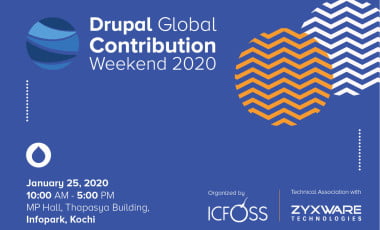Zyxware conducts GNU/Linux (Ubuntu) training for Kerala Legislative Assembly Employees
As part of the ongoing process of migrating computers in Kerala Legislative Assembly to Free Software, we got the opportunity to offer GNU/Linux training to the first set of 120 employees of Kerala Niyamasabha. Zyxware Technologies conducted trainings for 8 batches of staff of Assembly. Each batch had a session of 2 hours each. This was spread over 8 days between November 26, 2013 to December 6, 2013.
For the last last decade Kerala has slowly been migrating towards Free Software. One of the most successful initiatives in this direction is the IT@School project. KSEB, Khadi Board and some other government offices too have similar stories of successful Free Software migration.
The Kerala Legislative Assembly, has also been making an effort in this direction. It is heartening to note that the heart of democratic power in Kerala is adopting Free Software for its functioning. The Kerala Legislative Assembly began this initiative with a distribution of Free Software pre-installed laptops to members of the Assembly and some of the staff. Zyxware Technologies, along with Canonical, had provided support for this. However, the transition had not been completed and there were many stumbling blocks in between.
The Assembly began a process of converting the documentation of the proceedings of the Assembly and other texts generated within Kerala Legislative Assembly into Unicode format from the earlier ASCII data. A training was given to the staff of the Assembly including the typists, supervisors and other relevant officers on Inscript Keyboard as part of this conversion. However, inadvertently, it gave out the impression that everybody should learn Inscript to create content in Unicode. Since most of the staff were using Remington for long, they found the shift to Inscript difficult and inefficient. Very soon, it reinforced the popular myth that Free Software is not user friendly in their minds.
It was in this context that the Assembly approached ICFOSS to organise a training for their staff. In turn, ICFOSS selected Zyxware Technologies as the organisation to provide training at the Assembly. Zyxware Technologies has considerable experience in this area of Free Software trainings.
The classes were led by Sooraj Kenoth, Free Software Consultant at Zyxware Technologies with the assistance of Sandeep Sasikumar, System Administrator at Zyxware Technologies. Apart from them, additional support staff from ICFOSS was also present for the trainings. (Anjali System Administrator at ICFOSS and Abhilash System Administrator at ICFOSS).
The training started on November 26 with a Keynote speech by Dr.Sreenivasan of ICFOSS. He said Free Software closely resembles the laws of nature. Therefore, it is a model that can survive across generations. Moving towards Free Software is an intelligent choice.
One of the key challenges facing the trainers were some of the perceptions about Free Software in the minds of the staff. Some of these included, “Free Software is a Free of cost product from Free Software
Foundation(FSF) a company like Microsoft, it is available with a name Ubuntu.”
This led to the feeling amongst the staff that the government wanted to reduce the expenses by moving to free of cost products and put the additional burden of learning a new system on the staff. Realising this, the trainers explained to the staff the concept of Free Software and the relevance of Software Freedom. In the case of proprietary software, we are likely to fall into a dependency on most the technologies we are using to simplify our tasks. These dependencies can give the power to developer to control us through the application and eventually they may start to rule us. Free Software was a counter to this. Once, the initial confusion was cleared, they began to take a keen interest in learning Free Software tools.
Soon we got to the issue of difficulty they faced in typing using Inscript. The good news from their point of view was that they did not have to depend on Inscript for Malayalam typing but they could go back to their trusted tool, Remington. Apart from that in GNU/Linux they have Malayalam spell checker, auto correct etc. These were advantages that Free Software had as opposed to Microsoft Windows. The participants in the training were convinced that in Free Software, the control was always with the user and that by learning the technology, they could control it.
At this particular point, it is important to remember the contributions of Sathosh Thottingal the initiator of Malayalam spell checker and auto-correct and Sebin Abraham Jacob who ported Remington to GNU/Linux.
We followed Unity-Desktop as all the systems have pre-installed Ubuntu with Unity environment. We introduced the other desktop environments that were available like GNOME, KDE, XFCE, LXDE etc. The properly categorised menu in all these systems and wide variety of choices went a long way in removing the misconception that Free Software is not user friendly. The non-complex file manager and traditional interface in Libre Office made them to a conclude that Free Software is easy to learn and not a major challenge as they previously thought. Also a lot people expressed their interest to install GNU/Linux in their home desktops/laptops when they came to know that there is less chance for virus attacks in GNU/Linux systems.
The class had a mixed type of audience. There were people who didn't touch the computer for last five years, and at the same time good experienced candidates. The customisation and experiments made most of the installed features unusable. Eight years of experience in Free Software and training on the part of the trainers helped manage this diversity and make it a useful learning experience for the participants.
We look forward to a successful Free Software migration at the Kerala Legislative Assembly. It will be an important advance for Free Software in Kerala.



